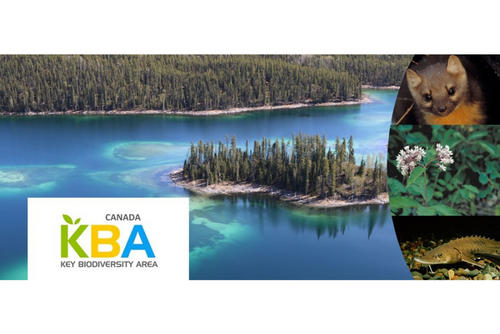
Great progress has been made recently to identify growing numbers of Key Biodiversity Areas in Canada. We are on track to identify all ‘global’ KBAs by the end of 2020. This will not include KBAs for species for which we have insufficient data for assessment – there are many rare and threatened species in Canada that we need to know more about before we can conserve them effectively.
We recently held a workshop to identify freshwater KBAs across Canada (February 18-20th). This workshop followed an effort by the IUCN and freshwater experts in 2015 that identified 13 freshwater sites, before the KBA Standard was finalized. In addition to revisiting those 13 sites and assessing them against newly published KBA criteria, we identified 53 new potential KBAs, including sites that are triggered by fish, freshwater mussels, aquatic plants and insects. This effort was also our first opportunity to make use of the biodiversity spatial database developed by NatureServe Canada in a workshop setting. We are grateful to the superb group of experts present who made the workshop a success.

NatureServe Canada has made great progress in data mining and developing range maps, currently making use of ~3.2 million species occurrences. Their Ecosystem-Based Automated Range (EBAR) maps are already informing KBA assessments by combining biodiversity data and expert knowledge to populate presence information for species in ecoshapes across North America. NatureServe Canada has developed a web app with ESRI Canada to review EBAR maps, allowing experts to provide feedback. If you’re interested in participating in EBAR map review, please contact the team at: EBAR-KBA@natureserve.ca
As always, please get in touch if you have questions or if you are interested in identifying Key Biodiversity Areas in your region.
Ciara Raudsepp-Hearne
Canada Key Biodiversity Areas Coordinator / Coordonnatrice Zones Clés pour la Biodiversité